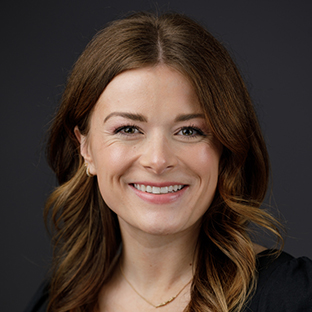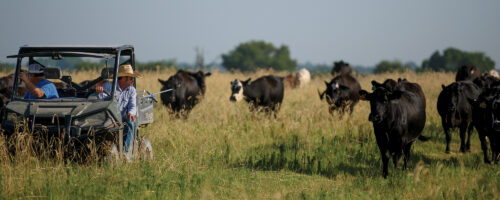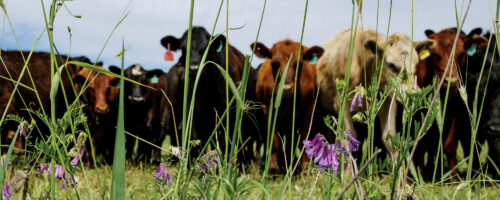Mainstream America is in its cowboy era. From Hollywood to social media influencers and high-fashion brands, everyone seems eager to don a cowboy hat and boots.
However, these accessories alone do not capture the true meaning of being a cowboy or rancher. This lifestyle is defined by a love for animals, hard work and community. Paul Luna, ranch facility manager at Noble Research Institute, embodies these qualities, offering a genuine look into the heart of ranching and rodeo.
Luna joined Noble after a distinguished 28-year career in law enforcement, where he served as an investigator specializing in oil-field and heavy-equipment theft. A timely call from a friend led Luna to transition from law enforcement to ranch management with Noble in 2018.
His days on the job are filled with checking livestock, planning their movements and managing paddocks. His role is demanding yet fulfilling, driven by a passion for the land and the animals he oversees.
Beyond his ranching duties, Luna’s heart belongs to the rodeo arena. His journey into the rodeo world began with his father, who taught him roping fundamentals.
“I can’t really tell you when I first started roping, but my dad taught me how to rope,” he says.
By age 8, Luna and his dad were regulars at local jackpot ropings, with him as the header and his dad as the heeler. These early experiences honed Luna’s horsemanship skills, qualities that he exemplifies on and off the ranch.
Luna’s rodeo career continued into high school with team roping, later transitioning to calf roping.
“I started team roping in high school. A friend of mine was a calf roper, and that’s how I started calf roping,” he says.
Rodeo culture and ranching are inherently intertwined, each enriching the other. One of Luna’s horses, Paint, trained for rodeo events, is also a trusty partner on the ranch. His connection with his horses is built on trust and mutual respect, not just winning.
“I like the competition at rodeos,” he says. “What I really enjoy, though, is training horses and working with them. It’s thrilling to see their progress.”
It’s no doubt Luna’s experiences in rodeoing have influenced his approach to ranch work. The skills he and his horses master in the arena – discipline, patience and precision – are invaluable on the ranch.
“In 2009, I bought a horse to rodeo with and trained him to calf rope,” he says. “When I came to work at Noble, I also used him on the ranch to check calves.”
Luna’s experience, shaped by both rodeoing and ranching, reminds us that the values learned in the rodeo arena are timeless, continuing to shape and enrich the lives of those who embrace ranching as a career.
Cowboy hats and boots may draw attention, but true connection comes from understanding the hard work and resilience behind our way of life. Stories like Luna’s can inspire a new generation to embrace the bottom line of being a rancher: Hard work and horse sense.


